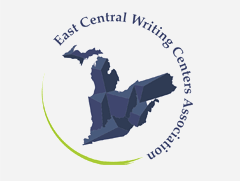Presentation/Proposal Title
Expanding into the Disciplines: Conventions and Expectations for Undergraduate Writing in Social Work
Type of Presentation/Proposal
Individual Presentation or Paper
Start Date
5-4-2019 8:30 AM
End Date
5-4-2019 9:30 AM
Keywords
Social work writing; undergraduate writing pedagogy; disciplinary writing; Writing Across the Curriculum/Writing in the Disciplines
Description
Writing centers support students from many disciplines, yet are frequently staffed, at both peer tutor and administrative levels, by individuals with English or rhetoric/composition backgrounds. Undergraduate tutors are, of course, trained to use generalist tutoring methods to support each individual student-writer, regardless of discipline. However, I recall my frustrations as a tutor, feeling I could better assist more writers if I knew more about writing conventions in other disciplines.
My desire to better understand undergraduate writing expectations across the disciplines led to my current research into writing-related pedagogy in disciplines like social work. Zawacki (2008) reports that writing fellows learned more about disciplinary writing and writing-related pedagogy through close involvement with disciplinary courses; in my study, I observed an upper-level social work course, interviewed the course instructor regarding his pedagogical goals and perspectives on writing, and assessed and coded his feedback on student assignments. From these data, I derived several core concepts that seemed significant to social work writing. I then interviewed other undergraduate social work instructors to determine if they considered these concepts important for undergraduate writers to demonstrate in their courses.
This presentation does not suggest strict rules for social work writing. Rather, it introduces some concepts that tutors might consider when consulting on social work texts, concepts that could help tutors better engage in conversational give-and-take with social work writers. The presentation also proposes a possible framework for writing center administrators interested in expanding the work of their centers and conducting similar research at their own institutions.
Expanding into the Disciplines: Conventions and Expectations for Undergraduate Writing in Social Work
Deeds Boardroom
Writing centers support students from many disciplines, yet are frequently staffed, at both peer tutor and administrative levels, by individuals with English or rhetoric/composition backgrounds. Undergraduate tutors are, of course, trained to use generalist tutoring methods to support each individual student-writer, regardless of discipline. However, I recall my frustrations as a tutor, feeling I could better assist more writers if I knew more about writing conventions in other disciplines.
My desire to better understand undergraduate writing expectations across the disciplines led to my current research into writing-related pedagogy in disciplines like social work. Zawacki (2008) reports that writing fellows learned more about disciplinary writing and writing-related pedagogy through close involvement with disciplinary courses; in my study, I observed an upper-level social work course, interviewed the course instructor regarding his pedagogical goals and perspectives on writing, and assessed and coded his feedback on student assignments. From these data, I derived several core concepts that seemed significant to social work writing. I then interviewed other undergraduate social work instructors to determine if they considered these concepts important for undergraduate writers to demonstrate in their courses.
This presentation does not suggest strict rules for social work writing. Rather, it introduces some concepts that tutors might consider when consulting on social work texts, concepts that could help tutors better engage in conversational give-and-take with social work writers. The presentation also proposes a possible framework for writing center administrators interested in expanding the work of their centers and conducting similar research at their own institutions.


